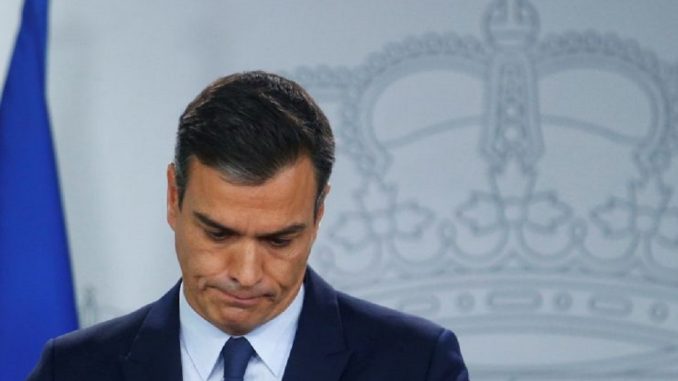
The new elections will not solve the old problems. We have to turn everything around. The second round of consultations of Felipe VI with the political parties ruled that none of the candidates have enough support to become president. After four months of comings and goings, the failure of the investiture of Pedro Sánchez (PSOE) was consumed, the Legislature was dissolved and there will be new elections on November 10. It will be the second election in seven months and the fourth in four years, a unique case in Europe.
This is a debate marked by the responsibility of the failed proclamation. Pedro Sánchez accuses Podemos because “it has blocked for the fourth time the investiture of a socialist”. Pablo Iglesias (Podemos) blames Sánchez for preferring Ciudadanos (Cs) and “wanting to be president for nothing”. Gabriel Rufián (ERC) questions both of them because “they have lost the historic opportunity” to achieve a “leftist government.” The right-wing Trio de Colón (PP, Cs and VOX) points to the PSOE arguing that it never intended to agree and its strategy had always been returning to the polls. Within this situation, the last Session of Control of the Government became a platform for relaunching the campaign for votes.
The electoral repetition is not seen with good eyes, the people are getting tired. There is discontent because of the paralysis of the government, because it is not dealing with certain social issues, like the low wages and pensions, the trash contracts backed by the labour reforms, the cuts in health care and education, while rent is unaffordable. On top of that, the cost of voting again is pretty high, while those funds could be used for something else. What will be the result? Social-democracy asks the Spanish people to “speak clearer” and give them a greater advantage than the one in the election of 28A, when it won 123 seats. From the beginning, polls point to the PSOE as winner. However, there is no guarantee that the elections will not further complicate the scenario or give a new boost to the right wing.
Since 2015 there have been repeated elections, failed investitures and motions of censorship, for over a year there has not been an elected president in government. There is a lasting crisis that will not be solved by the election of one or another president, that is why we must not support the candidates of the bourgeoisie and the regime. Even less should we choose a supposed “lesser evil” that always ends up being equal or worse. The perspective of the Spanish State is complicated by the political instability, the slowdown of the economy, the verdict of the show trial and the impact of Brexit, among other issues.
Confronted with this reality, the parties of the regime talk about the need for constitutional reforms, but they only want to patch things up. We must get to the bottom of the issues: the ’78 regime is exhausted, it cannot offer any progressive solutions for the political, social and economic problems of the majority. It is necessary for workers and the people to break into the scene. For those from below to impose their own political and social agenda, such as on 15M. Like the pensioners, the feminist movement and the Catalans for the right to the self-determination and the freedom of political prisoners and exiled have done. To achieve important changes, it is essential for the political unrest to transform into massive street mobilizations, civil disobedience and general strikes that shake the passivity of the trade union centrals. In addition, these are the best antidotes to defeat the right and the far right wherever they show up.
We must turn everything around because the monarchic and parliamentary regime inherited from Franco is exhausted, it is antidemocratic, anti-workers, a server of the Ibex 35 and the European Union. The people have the right to democratically debate and decide their own destiny in a free and sovereign constituent assembly. We do not trust parties like the PSOE, PP, Ciudadanos and VOX. On the other side, Podemos has lost great part of the sympathy it had conquered. Its adaptation to the regime is shown again in its abandonment of mobilization, the attempt of governing in a coalition with the PSOE and its shameful appeal to the mediation of the king in order to achieve it.
In the Spanish State, a new political alternative of the left is needed, a coherent and anti-capitalist one that promotes the mobilization and the struggle for a socialist government of the working people, that breaks with the European Union with the strategy of a Free Federation of Socialist Iberian States. That is why we are organised in SOL as members of the International Socialist League.
Ruben Tzanoff








